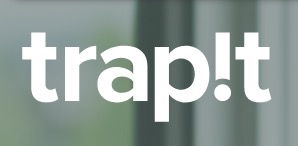
“Water water everywhere, nor any drop to drink”
Image via
We’re all familiar with Samuel Coleridge’s late-18th century “The Rime of the Ancient Mariner” – the tormented sailor punished at sea, a dead albatross around his neck, dying of thirst while surrounded by water. Today, we live in oceans of data, yet struggle to quench our thirst for relevant content.
Recently, I was enjoying some cheese and wine after dinner. As I was about to put English Stilton on a water cracker, a colleague I was traveling with suggested I try the wheat cracker instead. “The Stilton will over-power that biscuit,” she said. “I think you’ll find the heartiness of the whole wheat will better stand up to the pungent blue cheese and sweet fig.” Now, I’m far from a gourmet, so I gladly accepted this well-informed advice. But my culinary ineptitude is hardly the point. What struck me was the breadth and depth and diversity of choices we are exposed to every minute of our lives. From the time we are born until our dying day, we are bombarded by – engulfed in – an overwhelming stream of ideas, choices, and information, from innumerable sources: visual, audible, tactile, and olfactory, and from an ever-increasing number of sources. This ranges from television to the Internet to the rants and ramblings of other human beings to the sounds, signals, salutations, or suggestions that assault our senses throughout all of our waking moments, rewinding and replaying, and we struggle to choose.
We’d like to believe we live in the Age of Information; we really live in the Age of Data. Data is an ocean… vast, deep, impenetrable, and unfathomable. We can easily drown in this ocean of data, swept away by rip currents of dancing cats and singing dogs and “must-buys.” Relevant information is the bounty from this ocean of data – the pearl of relevance from that oyster so obscure in a remote crevice so far beneath the surface. It is that sunken treasure undistinguished from the sands and seaweed and saline that has concealed it for so many centuries. Yet the course our lives take is determined by our ability to distinguish that which is relevant from that which is meaningless – the pearl from the mussel, the gold from the sunken treasure chest, from that rusted iron of a trawler’s hull.
The point is, the explosion of technology over the past decade has made this ocean of data deeper and wider – and treacherously so. I am struck by the observation that 90% of all the world’s content had been created in the past two years. The initial reaction is one of wonder and excitement – so much “content” in such a short time. Yet that observation makes no judgment on the quality or veracity of this content: are we to believe that the great works of countless millennia of human creativity: from Plato to Shakespeare to Da Vinci and Einstein – have been replicated – tenfold – in the past two years? Hardly. These great works of human intellect – from centuries ago and continuing today – will always be precious and desirable. But the ever-increasing quantity of data available today threatens to drown that information which is truly important, meaningful, and relevant – to you. For we each have different passions that swim in these vast oceans. And as these oceans get deeper and the tides higher and currents swifter, it is increasingly difficult to capture from these streams that which is personally relevant. Fact is, technology is not always synonymous with improved quality of our lives. Consider the Concord, which promised a future of supersonic air travel – still unrealized despite its maiden voyage nearly fifty years ago. Just as technology advancements have not materially improved the speed of air travel in our lifetimes, technology’s advancements in the ability to create data have not improved our ability to separate what is banal from what is relevant.
In short, our lives depend on our capacity to recognize and process the increasing streams of data that surround and assail us, and the actions we take based on our assimilation of this data – the art of discerning what is relevant from the vast majority that is personally absurd. And since the course and quality of our lives so depends on how effectively we discern the pearls from the scrap, even incremental improvements to the means have fundamental impact on the ends.
We believe Trapit is much more than an incremental improvement to the way groups and individuals can process data – it’s a tool that is revolutionary in its ability to assist in the filtering of an endlessly expanding flood of data. Curation is key in this hunt for content that matters to you or your audience. You can learn more about how Trapit can help evaporate this ocean and why you should be curating here.
-Gary